Saturday, September 30, 2006
Tough Questions For House GOP Leadership

What did you know and when did you know it?
And what did you do about it when you found out?
House Majority Leader John A. Boehner (R-Ohio) told The Washington Post last night that he had learned this spring of inappropriate "contact" between Foley and a 16-year-old page. Boehner said he then told House Speaker J. Dennis Hastert (R-Ill.). Boehner later contacted The Post and said he could not remember whether he talked to Hastert.
It was not immediately clear what actions Hastert took. His spokesman had said earlier that the speaker did not know of the sexually charged online exchanges between Foley and the boy.
House Minority Leader Nancy Pelosi (D-Calif.) took the House floor last night to demand an investigation into the Foley matter. But Boehner headed her off, calling on the House to refer the matter to the ethics committee, which the House promptly voted unanimously to do.
Friday, September 29, 2006
Pigeons Coming Home To Roost For Ashcroft
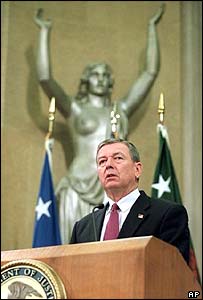
Hopefully this action is a taste of things to come for the architects of the "war on terror."
A federal judge in Idaho has ruled that former attorney general John D. Ashcroft can be held personally responsible for the wrongful detention of a U.S. citizen arrested as a "material witness" in a terrorism case.
U.S. District Judge Edward J. Lodge, in a ruling issued late Wednesday, dismissed claims by the Justice Department that Ashcroft and other officials should be granted immunity from claims by a former star college football player arrested at Dulles International Airport in 2003.
Attorneys for the plaintiff in the civil suit, Abdullah al-Kidd, said the decision raises the possibility that Ashcroft could be forced to testify or turn over records about the government's use of the material witness law, a cornerstone of its controversial legal strategy after the Sept. 11, 2001, terrorist attacks. ...
Robin Goldfaden, one of Kidd's attorneys at the American Civil Liberties Union, said the case "could be the launching point for more fully documenting how the government is misusing the material witness statute."
The law was intended to give authorities the power to detain witnesses they feared might flee before testifying. But after the Sept. 11 attacks, the government used it to hold 70 men, nearly half of whom were never called to testify in court, according to a study by the ACLU and Human Rights Watch.
Kidd -- a Kansas native who was known as Lavoni T. Kidd before converting to Islam -- was arrested in March 2003 as he prepared to board a flight to Saudi Arabia, where he was planning to pursue a doctorate in Islamic studies. Federal prosecutors claimed he was a flight risk crucial to the prosecution of a fellow University of Idaho student, Sami Omar al-Hussayen.
Kidd was imprisoned for 16 days in three states and then placed under restrictive court supervision for more than a year. But Kidd was never called to testify against Hussayen, who was eventually acquitted of computer-related terrorism charges.
While not deciding on the veracity of Kidd's claims, Lodge, who was appointed to the federal bench in 1989 by President George H.W. Bush, ruled that Ashcroft could be found personally liable in the case because of his role in establishing and enforcing the government's material-witness policies.
Wednesday, September 27, 2006
House Tries To Deny Legal Fees To ACLU In Religious Cases
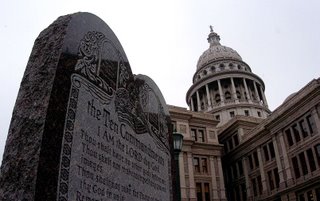
Christians like to try to impose medieval public displays on our secular society. Christofascists complain when they are caught doing so.
The House passed a bill yesterday that would bar judges from awarding legal fees to the American Civil Liberties Union and similar groups that sue municipalities for violating the Constitution's ban on government establishment of religion.
Though the bill would prevent plaintiffs from recovering legal costs in any lawsuit based on the Establishment Clause, House Republicans said during a floor debate that it was particularly aimed at organizations that force the removal of Nativity scenes and Ten Commandments monuments from public property.
"Liberal groups . . . scour the country looking to sue cities and states with any kind of religious display, regardless of how popular these displays are," said Rep. Ginny Brown-Waite (R-Fla.). Because judges often require municipalities that lose such lawsuits to reimburse their opponents' legal fees, "citizens' precious monuments are being eroded with their own tax dollars," she added. ...
Caroline Fredrickson, director of the ACLU's Washington legislative office, said the measure is "election-year red meat for the Christian right, because they've been complaining they haven't gotten enough from this Congress."
Fredrickson added that it appears unlikely the Senate will pass the bill.
"But we're watching it, because it is designed to do real damage to First Amendment protections," she said. "What the backers of this legislation are leaving out of the discussion is that fees are only awarded when we've been successful in showing that someone's constitutional rights have been violated."
Tuesday, September 26, 2006
PA Republicans' "Green Gambit" Fails
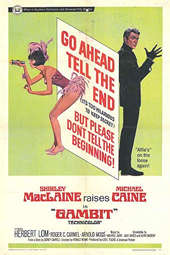
From TPM Muckraker:
It's over. A judge has ... ruled that Green Senate candidate Carl Romanelli is off the ballot in the Pennsylvania Senate race.
That strikes a deadly blow to Pennsylvania Republicans' gambit to draw votes away from Democrat Bob Casey by fielding a Green candidate. As we reported earlier, all of Romanelli's support was from conservative donors, and Sen. Rick Santorum's (R-PA) volunteers worked hard gathering signatures to get Romanelli on the ballot. The Santorum campaign has admitted steering help toward the Romanelli campaign.
After Romanelli gathered almost 100,000 signatures to qualify, Democrats challenged the signatures' validity. A court fight followed, and now a judge has found that the Greens are short almost 9,000 valid signatures from the 67,000 required by law.
Update: The Greens have one last hope -- but it seems a long shot. The state supreme court has yet to rule on Romanelli's bid to change the threshold of signatures required by the law. If Romanelli won that motion, then he would only need about 16,000 signatures. But for now, Romanelli's off the ballot and would have to appeal to get back on.
Monday, September 25, 2006
Retired Officers Calling BS On Rumsfeld
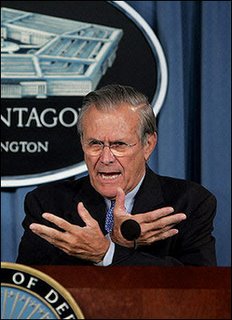
Senate Democrats are holding a hearing on the Iraq quagmire. There are going to be some interesting witnesses.
Retired military officers on Monday are expected to bluntly accuse Defense Secretary Donald H. Rumsfeld of bungling the war in Iraq, saying U.S. troops were sent to fight without the best equipment and that critical facts were hidden from the public.
"I believe that Secretary Rumsfeld and others in the administration did not tell the American people the truth for fear of losing support for the war in Iraq," retired Maj. Gen. John R. S. Batiste said in remarks prepared for a hearing by the Senate Democratic Policy Committee.
A second witness, retired Maj. Gen. Paul Eaton, is expected to assess Rumsfeld as "incompetent strategically, operationally and tactically ...."
"Mr. Rumsfeld and his immediate team must be replaced or we will see two more years of extraordinarily bad decision-making," said his testimony prepared for the hearing, to be held six weeks before the Nov. 7 midterm elections in which the war is a central issue. ...
It is unusual for retired military officers to criticize the Pentagon while military operations are under way, particularly at a public event likely to draw widespread media attention.
But Batiste, Eaton and retired Col. Paul X. Hammes were unsparing in remarks that suggested deep anger at the way the military had been treated. All three served in Iraq, and Batiste also was senior military assistant to then-Deputy Secretary of Defense Paul Wolfowitz.
Batiste, who commanded the Army's 1st Infantry Division in Iraq, also blamed Congress for failing to ask "the tough questions."
He said Rumsfeld at one point threatened to fire the next person who mentioned the need for a postwar plan in Iraq.
Batiste said if full consideration had been given to the requirements for war, it's likely the U.S. would have kept its focus on Afghanistan, "not fueled Islamic fundamentalism across the globe, and not created more enemies than there were insurgents."
Sunday, September 24, 2006
Shield Law For Reporters Stopped

The administration sees the fourth estate as a fifth column.
The Senate Judiciary Committee has postponed consideration of a federal shield law for journalists after hearing strong new objections to the measure from the Justice Department. ...
One focus of administration opposition is a provision that would require the Justice Department, to obtain a journalist's testimony about sources of a leak of national security information, to convince a judge that the disclosure caused more harm to the government than benefit to the public. The judge would have to weigh the possible danger to national security against the public's right to know the information.
Under current law, no such balancing test is administered by a judge. Instead, a journalist who is subpoenaed to give up the source of such a national security leak has no protection unless he can prove the government's request is unreasonable or a form of harassment.
"In imposing a burden of proof on the government, it places a thumb on the scale in favor of the reporter's privilege and tips the balance against executive branch judgments about the nature and scope of damage or potential damage to our nation's security," Deputy Attorney General Paul J. McNulty told the Judiciary Committee at a hearing last week.
The bill also sends the wrong message to leakers, McNulty said, adding that "it may encourage their unlawful and dangerous behavior." The measure puts federal judges "into the altogether unfamiliar territory of having to weigh national security interests against the public's interest in receiving certain news . . . [and] as numerous judges have recognized, the courts lack the institutional resources and expertise to make those decisions," he said.
Saturday, September 23, 2006
Clinton Smacks Down FOX News' Chris Wallace Over 9/11 Blame

This is good:
President Bill Clinton taped an interview with Fox News' Chris Wallace, which is scheduled to be aired Sunday. He was told the interview would focus on his nonpartisan efforts to raise over $7 billion to combat the world's biggest problems.
Early in the interview, Wallace attempted to smear Clinton with the same kind of misinformation contained in ABC's Path to 9/11. Clinton was having none of it.
ThinkProgress has obtained a transcript of the interview. Here are some highlights:
Wallace repeats Path to 9/11 misinformation, Clinton fights back:
WALLACE: When we announced that you were going to be on Fox News Sunday, I got a lot of email from viewers, and I got to say I was surprised most of them wanted me to ask you this question. Why didn't you do more to put Bin Laden and al Qaeda out of business when you were President? There's a new book out which I suspect you've read called the Looming Tower. And it talks about how the fact that when you pulled troops out of Somalia in 1993, Bin Laden said "I have seen the frailty and the weakness and the cowardice of US troops." Then there was the bombing of the embassies in Africa and the attack on the USS Cole.
CLINTON: OK..
WALLACE: ...may I just finish the question sir. And after the attack, the book says, Bin Laden separated his leaders because he expected an attack and there was no response. I understand that hindsight is 20/20.
CLINTON: No let's talk about...
WALLACE: ...but the question is why didn't you do more, connect the dots and put them out of business?
CLINTON: OK, let's talk about it. I will answer all of those things on the merits but I want to talk about the context of which this arises. I'm being asked this on the FOX network... ABC just had a right wing conservative on the Path to 9/11 falsely claim that it was based on the 9/11 Commission report with three things asserted against me that are directly contradicted by the 9/11 Commission report. I think it's very interesting that all the conservative Republicans who now say that I didn't do enough, claimed that I was obsessed with Bin Laden. All of President Bush's neocons claimed that I was too obsessed with finding Bin Laden when they didn't have a single meeting about Bin Laden for the nine months after I left office. All the right wingers who now say that I didn't do enough said that I did too much. Same people.
Clinton takes on Fox News bias:
WALLACE: Do you think you did enough sir?
CLINTON: No, because I didn't get him.
WALLACE: Right...
CLINTON: But at least I tried. That's the difference in me and some, including all the right wingers who are attacking me now. They ridiculed me for trying. They had eight months to try and they didn't... I tried. So I tried and failed. When I failed I left a comprehensive anti-terror strategy and the best guy in the country, Dick Clarke... So you did FOX's bidding on this show. You did you nice little conservative hit job on me. But what I want to know..
WALLACE: Now wait a minute sir...
CLINTON: ...
WALLACE: I asked a question. You don't think that's a legitimate question?
CLINTON: It was a perfectly legitimate question but I want to know how many people in the Bush administration you asked this question of. I want to know how many people in the Bush administration you asked: Why didn't you do anything about the Cole? I want to know how many you asked: Why did you fire Dick Clarke? I want to know...
WALLACE: We asked...
CLINTON: ...
WALLACE: Do you ever watch Fox News Sunday sir?
CLINTON: I don't believe you ask them that.
WALLACE: We ask plenty of questions of ...
CLINTON: You didn't ask that did you? Tell the truth.
WALLACE: About the USS Cole?
CLINTON: Tell the truth.
WALLACE: I... with Iraq and Afghanistan there's plenty of stuff to ask.
CLINTON: Did you ever ask that? You set this meeting up because you were going to get a lot of criticism from your viewers because Rupert Murdoch is going to get a lot of criticism from your viewers for supporting my work on climate change. And you came here under false pretenses and said that you'd spend half the time talking about...
WALLACE: [laughs]
CLINTON: You said you'd spend half the time talking about what we did out there to raise $7 billion dollars plus over three days from 215 different commitments. And you don't care.
Clinton on his priorities and the Bush administration priorities:
CLINTON: What did I do? I worked hard to try and kill him. I authorized a finding for the CIA to kill him. We contracted with people to kill him. I got closer to killing him than anybody has gotten since. And if I were still president we'd have more than 20,000 troops there trying to kill him. Now I never criticized President Bush and I don't think this is useful. But you know we do have a government that thinks Afghanistan is 1/7 as important as Iraq. And you ask me about terror and Al Qaeda with that sort of dismissive theme when all you have to do is read Richard Clarke's book to look at what we did in a comprehensive systematic way to try to protect the country against terror. And you've got that little smirk on your face. It looks like you've so clever...
WALLACE: [Laughs]
CLINTON: I had responsibility for trying to protect this country. I tried and I failed to get Bin Laden. I regret it but I did try. And I did everything I thought I responsibly could. The entire military was against sending special forces into Afghanistan and refueling by helicopter and no one thought we could do it otherwise... We could not get the CIA and the FBI to certify that Al Qaeda was responsible while I was President. Until I left office. And yet I get asked about this all the time and they had three times as much time to get him as I did and no one ever asks them about this. I think that's strange.
Friday, September 22, 2006
Jackson Urged Favoritism in HUD Contracts
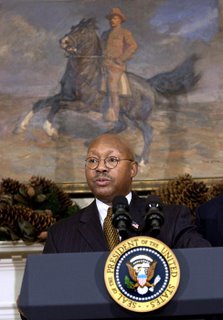
If you want to do business with Housing and Urban Development, it really helps to be a Republican.
An inspector general's report charges that top U.S. housing official Alphonso Jackson urged staff members to favor friends of President Bush when awarding Department of Housing and Urban Development contracts. But investigators so far have found no direct proof that Jackson's staff obeyed.
His chief of staff told investigators that Jackson, the HUD secretary, "personally intervened with contractors whom he did not like . . . these contractors had Democratic political affiliations," says the report, a copy of which was made available to The Washington Post.
The investigation "did not disclose any pattern or practice of issuing contracts based on political affiliation . . . however, there were some limited instances where political affiliation may have been a factor in contract issues involving Jackson," the report says.
Awarding contracts on the basis of party affiliation violates federal law. ...
Calls for an inquiry came after Jackson, Bush's onetime neighbor in Dallas and former housing authority chief in that city, told attendees at a public forum in Dallas on April 28 that he had killed a contract award to a firm after its chief told Jackson he disliked Bush. Jackson later took back his remarks and told investigators from the inspector general's office that he had "lied, and I regret having done that."
Thursday, September 21, 2006
Congressional Approval Rate Dismal

They will need to put an extra special tweaking on the electronic voting systems to deal with numbers like this:
With barely seven weeks until the midterm elections, Americans have an overwhelmingly negative view of the Republican-controlled Congress, with substantial majorities saying that they disapprove of the job it is doing and that its members do not deserve re-election, according to the latest New York Times/CBS News poll.
The disdain for Congress is as intense as it has been since 1994, when Republicans captured 52 seats to end 40 years of Democratic control of the House and retook the Senate as well. It underlines the challenge the Republican Party faces in trying to hold on to power in the face of a surge in anti-incumbent sentiment.
By broad margins, respondents said that members of Congress were too tied to special interests and that they did not understand the needs and problems of average Americans. Two-thirds said Congress had accomplished less than it typically did in a two-year session; most said they could not name a single major piece of legislation that cleared this Congress. Just 25 percent said they approved of the way Congress was doing its job. ...
In one striking finding, 77 percent of respondents -- including 65 percent of Republicans -- said most members of Congress had not done a good enough job to deserve re-election and that it was time to give a new people a chance. That is the highest number of voters saying it is "time for new people" since the fall of 1994. ...
In the poll, 50 percent said they would support a Democrat in the fall Congressional elections, compared with 35 percent who said they would support a Republican. But the poll found that Democrats continued to struggle to offer a strong case for turning government control over to them; only 38 percent said the Democrats had a clear plan for how they would run the country, compared with 45 percent who said the Republicans had offered a clear plan.
Overall discontent with Congress or Washington does not necessarily signify how people will vote when they see the familiar name of their member of Congress on the ballot, however. Democrats face substantial institutional obstacles in trying to repeat what Republicans accomplished in 1994, including a Republican financial advantage and the fact that far fewer seats are in play.
And the "tamper-proof" electronic voting technology.
Wednesday, September 20, 2006
GOP Dissidents Facing Filibuster Threat

Some odious torture fetishists are fighting against the "dissidents" in the GOP who care about the reputation of the United States:
Senate Majority Leader Bill Frist signaled yesterday that he and other White House allies will filibuster a bill dealing with the interrogation and prosecution of detainees if they cannot persuade a rival group of Republicans to rewrite key provisions opposed by President Bush.
Frist's chief of staff, Eric M. Ueland, called the dissidents' bill "dead."
With Congress scheduled to adjourn in nine days, delaying tactics such as a filibuster could kill the drive to enact detainee legislation before the Nov. 7 elections, a White House priority. Bush faced still more problems in the House, where GOP moderates Christopher Shays (Conn.), Michael N. Castle (Del.), Jim Leach (Iowa) and James T. Walsh (N.Y.) publicly threw their support behind the bill opposed by the White House. The four Republicans told Majority Leader John A. Boehner (R-Ohio) that any House bill must maintain the dissidents' principles.
On another front, legislation to authorize Bush's warrantless wiretapping program may be in more jeopardy. Frist said yesterday that he referred the warrantless surveillance matter to the Senate Select Committee on Intelligence for further review and would not bring it up for Senate consideration until next week.
Yesterday's actions significantly dimmed prospects that Congress can complete its national security agenda before adjournment. Frist (R-Tenn.) acknowledged that a majority of the 100 senators back the rival group on military commissions but that there are not enough to block a filibuster, which requires a super-majority of 60.
Tuesday, September 19, 2006
FoxFaith Is Coming
The company that brought TV viewers racy and irreverent programs such as "Nip/Tuck," "Temptation Island" and "The Simpsons" has found religion.
In the biggest commitment of its sort by a Hollywood studio, News Corp.'s Fox Filmed Entertainment is expected to unveil plans today to capture the gargantuan Christian audience that made "The Passion of the Christ" a global phenomenon.
The home entertainment division of Rupert Murdoch's movie studio plans to produce as many as a dozen films a year under a banner called FoxFaith. At least six of those films will be released in theaters under an agreement with two of the nation's largest chains, AMC Theatres and Carmike Cinemas.
The first theatrical release, called "Love's Abiding Joy," is scheduled to hit the big screen Oct. 6. The movie, which cost about $2 million to make, is based on the fourth installment of Christian novelist Janette Oke's popular series, "Love Comes Softly."
"A segment of the market is starving for this type of content," said Simon Swart, general manager of Fox's U.S. home entertainment unit.
"We want to push the production value, not videotape sermons or proselytize."
Hollywood has made religious-themed movies for years including such memorable titles as "The Ten Commandments" and "The Greatest Story Ever Told." But FoxFaith will target evangelical Christians who often have shunned popular entertainment as offensive.
Fox might seem an unlikely studio to pioneer a religious label, given its history as a purveyor of salacious TV programming. Yet people in the Christian community say the company has gained credibility as the voice for conservative America through its Fox News Channel.
Sunday, September 17, 2006
Tom Kean's Corporate Wizardry

Former N.J. Governor Tom Kean, who served as a producer on ABC's prevaricating docudrama "The Path To 9-11", is exposed here as a your typically crooked political type:
(Kean's) chief occupation is sitting on various corporate boards, including major financial firms such as CIT Group and Franklin Resources, Pepsico and the huge insurance firm known as United Health Group. He has sat on United Health's board since 1993 -- where he seems to have filled the same role of useful idiot that he played for the ABC producers.
For the past several months, the Securities and Exchange Commission has been investigating the conduct of United Health's management and directors. So have the Internal Revenue Service and prosecutors in the U.S. attorney's office for the Southern District of New York, who have subpoenaed documents from the company. The investigations came to light after a series of probing stories in the Wall Street Journal last May, which exposed the apparent backdating of hundreds of millions of dollars' worth of stock options by United Health management.
Those alleged manipulations, inflating the value of options granted to the company's management, evidently occurred with the connivance of the directors, including Kean, who sat on the company's compensation committee during three crucial years, according to the Journal.
Whether the backdating of the United Health options was legal or not, the failure to disclose those actions to stockholders and the public was probably illegal. The company has since been forced to restate its earnings by nearly $300 million, causing a plunge in the stock's value, and the directors have announced an internal investigation of the scandal. Meanwhile, major shareholders have filed lawsuits accusing Kean and the other directors of failing in their fiduciary duty.
Was Kean gullible, irresponsible, stupid or negligent? Perhaps we will learn when he is put under oath. As financial journalist Andy Serwer said on CNN when the Journal story broke, "These guys just sort of look crooked." Kean never seems to have noticed, and it is worth mentioning that his own compensation as a United Health director in 2004 reached $650,000 -- much higher than average for corporate directors, especially since he missed nearly a quarter of that year's meetings.
Kean doesn't quite seem to comprehend how badly he has compromised himself at United Health, since he continues to behave inappropriately. Last month the Journal reported that several top United Health executives and their spouses donated more than $20,000 to Kean Jr.'s Senate campaign at a fundraiser in Minnesota last May -- held on the same day that Kean Sr. and the other company directors met to consider how they would handle the burgeoning backdating scandal. When the Menendez campaign pointed out this gross conflict of interest, a Kean campaign spokeswoman claimed that the nexus of board meeting and fundraiser was only "a coincidence." The Keans' Republican supporters roared with outrage that anyone would dare to question the former governor's honesty and judgment.
Saturday, September 16, 2006
Allegation Of Administration Pressure On JAGs
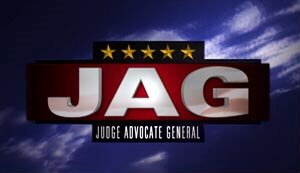
Only a few weeks ago the commanders of the Judge Advocate General Corps of each of the military services made statements in a congressional hearing that the proposed loosening of Geneva Convention protections urged by the White House would be a bad idea.
Now, they have changed their tune to some extent and have signed a letter saying that they "do not object" to such changes.
Someone got to these officers, and some Democratic lawmakers want to find out who.
Sens. Edward M. Kennedy (D-Mass.) and Richard J. Durbin (D-Ill.) called for a Judiciary Committee investigation into whether military judge advocates general were pressured into writing a letter this week saying they "do not object" to two sensitive parts of the administration's legislation.
Officials who attended the meeting in question, in the office of Pentagon general counsel William J. Haynes II on Wednesday, said there was no pressure on the military lawyers to produce the letter, describing a robust discussion about how to word its contents. The lawyers initially drafted a letter saying they "support" the two sections but later settled on saying they "do not object" to them.
"None of us would have signed anything if we had not believed it and absolutely agreed with it," Col. Ronald M. Reed, counsel to the Joint Chiefs of Staff chairman, said yesterday. "The discussion was nothing out of the ordinary."
But late yesterday, Maj. Gen. Scott C. Black, the Army's judge advocate general, sent a new letter to McCain and other senators, saying "further redefinition" of the conventions "is unnecessary and could be seen as a weakening of our treaty obligations, rather than a reinforcement of the standards of treatment."
The New York Times has come out today with an article on the JAG letter skullduggery.
Ney Pleads Guilty
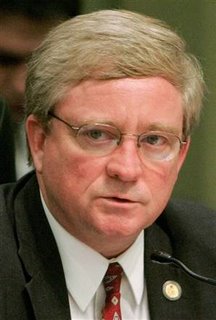
The Abramoff scandal claims another scalp (although this is no surprise to readers here):
Rep. Robert W. Ney (R-Ohio) agreed yesterday to plead guilty to corruption charges after admitting to performing a variety of official acts for lobbyists in exchange for campaign contributions, expensive meals, luxury travel, sports tickets and thousands of dollars in gambling chips. He is the first elected official to face prison time in the ongoing influence-peddling investigation of former GOP lobbying powerhouse Jack Abramoff.
After fiercely proclaiming his innocence for more than a year, Ney signed a two-count plea agreement Wednesday that the Justice Department filed in federal court yesterday. The charges of conspiracy and making a false statement could carry a prison sentence of up to 10 years, but prosecutors plan to seek a term of 27 months. He faces up to $500,000 in fines. ...
Court papers made no mention of any agreement on Ney's part to provide evidence against anyone else in the ongoing probe, unlike in other plea agreements that prosecutors have reached with Abramoff and his former associates. Ney is the eighth person to be indicted or to admit wrongdoing in connection with the Abramoff investigation, under which lobbyists, government officials and other lawmakers continue to be scrutinized.
Friday, September 15, 2006
Earmark Disclosure Slight-Of-Hand

Here is a typical example of lawmakers taking action to mask the fact that no real action is being taken.
The House voted yesterday to shed more light on narrow-interest tax and spending legislation called earmarks, an incremental step toward openness that ended the prospect for a more sweeping overhaul of federal lobbying laws this year.
With a 245 to 171 vote, the House reacted to a year of congressional scandals by requiring its members to own up to the thousands of earmarks they sponsor each year. ...
The rule change shelves a wider ethics bill, however, at least until next year. That bill became bogged down amid disagreements between the House and the Senate, and the reluctance of lawmakers from both parties to limit their interactions with lobbyists. The earmarks measure was brought up as a passable way to address voter unrest over the scandals, aides said.
"This bill represents the death of lobby reform," said Rep. David R. Obey (D-Wis.), a former chairman of the House Appropriations Committee. ...
The House and the Senate did endorse separate lobbying-overhaul bills this spring, but efforts to reconcile them stalled over a disagreement about a House-passed provision that would restrict independent campaign organizations called 527s. Senate Democrats and a handful of Republicans refused to accept the provision, but the House insisted that it be included in the final bill.
Lawmakers from both parties and both chambers also lost their enthusiasm for the bill as lobbying groups pressured them to water down the legislation and voters remained silent about its diminishing prospects.
Democratic leaders complained about the earmarks change yesterday. Rep. Louise M. Slaughter (D-N.Y.) called it "shameful" and "a sham." She said that the measure would not end the abuse of the earmarking process and was filled with loopholes that would still permit anonymous projects to be inserted into law without public scrutiny.
Obey called the measure a "trivial pursuit," saying it would do little to alter federal spending while blocking a serious updating of federal ethics laws. "The majority has labored long and produced a mouse," Obey added, "or a fig leaf at best."
Thursday, September 14, 2006
GOP Dissidents From Administration "Terror" Policies Spoil The Fun

Not all members of the "security party" in Washington are on board with the White House on two major issues:
Congress's Republican leadership yesterday threw its weight behind two of President Bush's most controversial national security programs, warrantless wiretapping and extrajudicial military tribunals.
But the party leaders are having trouble getting all their members on board, including the chairman of the Senate Armed Services Committee. And by backing the president's legislative demands, the leadership risks being labeled by Democrats as a rubber stamp for an unpopular president.
With prodding from Senate Majority Leader Bill Frist (R-Tenn.) and House Speaker J. Dennis Hastert (R-Ill.), the Senate Judiciary Committee voted 10 to 8 along party lines to approve a bill negotiated with the White House to allow -- but not require -- Bush to submit the National Security Agency's warrantless wiretapping program to a secret court for constitutional review. ...
At the same time, the House Armed Services Committee voted 52 to 8 to ratify the White House's version of legislation creating military commissions for trying terrorism suspects. The measure would give Bush the authority he seeks to withhold classified evidence from defendants, admit testimony that defendants might maintain was coerced, and protect U.S. intelligence agents from legal action over their interrogation methods. House Republican leaders plan to bring the tribunal bill to a vote next week. ...
In the House, the Judiciary Committee was forced to scrap a planned drafting of a warrantless surveillance bill, in part because nearly half a dozen Republican conservatives were in open rebellion against GOP leaders' efforts to weaken controls on the eavesdropping program. ...
Such internal dissension did not sit well with an orchestrated push to elevate the profile of the national security debate ahead of the Nov. 7 midterm elections. ...
(A) GOP track is to label military commissions "terrorist tribunals" and attack Democrats for opposing them. House Republican leadership aides acknowledged that the biggest roadblock to the president's military commissions is coming from Senate Republicans.
Wednesday, September 13, 2006
Bush Sees a 'Third Awakening'
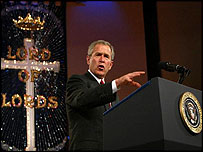
Nice.
President Bush said yesterday that he senses a "Third Awakening" of religious devotion in the United States that has coincided with the nation's struggle with international terrorists, a war that he depicted as "a confrontation between good and evil."
Bush told a group of conservative journalists that he notices more open expressions of faith among people he meets during his travels, and he suggested that might signal a broader revival similar to other religious movements in history. Bush noted that some of Abraham Lincoln's strongest supporters were religious people "who saw life in terms of good and evil" and who believed that slavery was evil. Many of his own supporters, he said, see the current conflict in similar terms.
"A lot of people in America see this as a confrontation between good and evil, including me," Bush said during a 1 1/2 -hour Oval Office conversation on cultural changes and a battle with terrorists that he sees lasting decades. "There was a stark change between the culture of the '50s and the '60s -- boom -- and I think there's change happening here," he added. "It seems to me that there's a Third Awakening."
The First Great Awakening refers to a wave of Christian fervor in the American colonies from about 1730 to 1760, while the Second Great Awakening is generally believed to have occurred from 1800 to 1830. ...
The White House did not release a transcript of Bush's remarks, but National Review posted highlights on its Web site.
Tuesday, September 12, 2006
Detainee Treatment and Tribunals Legislation
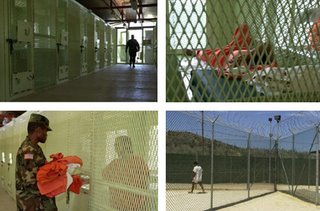
The gooper lawmakers are trying their best to help President Bush evade responsibility for having authorized abuses of prisoners in the "war on terror."
The Bush administration has won concessions from key Senate Republicans in proposed legislation on standards for detainee treatment and the rules for military trials of terrorism suspects, although some disagreements persist between the lawmakers and the White House, Senate sources said yesterday.
The disagreements that remain involve whether suspects can be convicted with evidence they are never allowed to see, an approach favored by the administration but opposed by the Republican senators. The two sides also still differ over the terms of a related amendment to the U.S. War Crimes Act that would limit the exposure of CIA officials and other civilian personnel to prosecution for abusive treatment of detainees, the sources said. ...
Lawmakers ... will be considering three bills -- the Senate and House bills plus the administration's own bill -- that contain many provisions the administration has sought. This prospect has raised concerns among human rights groups and defense attorneys who say the plans offer inadequate protections for defendants and would set a precedent for the use of similarly worrisome rules at foreign trials of captured U.S. personnel.
The Senate bill for the first time includes language supporting the administration's position that detainee abuse can be prosecuted only if it, in effect, "shocks the conscience." Legal experts say that instead of setting an absolute standard for conduct, the bill's language would leave room for judges to weigh the urgency of the information extracted from detainees during rough interrogations.
The revised Senate bill also would bar detainees held by the United States from bringing legal action against the government to challenge the legality of their detention or treatment. It would bar the collection of damages by detainees for violations of the Geneva Conventions, which set the minimum standards for wartime treatment. Both provisions were sought by the administration, although their language is not as sweeping as the White House preferred.
The new Senate draft also requires that any evidence used at trial be declassified or summarized, a provision the administration strongly opposes. Under the measures, the military judge presiding over a trial could dismiss charges if the government refuses to turn over evidence to the defendant.
The Senate draft also contains other provisions the administration opposes, including one that would allow the prosecution of U.S. personnel for any degrading treatment of detainees and another that would prohibit the use of evidence obtained through cruel, inhuman or degrading treatment. It further defines those subject to future military trials as people engaged in anti-U.S. hostilities, a narrower definition than the White House prefers.
Monday, September 11, 2006
CIA Officers Taking Out Legal Insurance
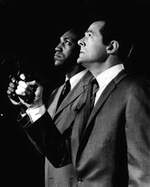
A plan like this is a better approach than (as advocated by one individual quoted in the article) expecting the Justice Department to provide adequate legal counsel in a jam.
This is because, if the winds shift, the government could easily choose to hang low-level operatives out to dry. Just like in the Abu Ghraib scandal.
CIA counterterrorism officers have signed up in growing numbers for a government-reimbursed, private insurance plan that would pay their civil judgments and legal expenses if they are sued or charged with criminal wrongdoing, according to current and former intelligence officials and others with knowledge of the program.
The new enrollments reflect heightened anxiety at the CIA that officers may be vulnerable to accusations they were involved in abuse, torture, human rights violations and other misconduct, including wrongdoing related to the Sept. 11, 2001, attacks. They worry that they will not have Justice Department representation in court or congressional inquiries, the officials said. ...
Justice Department political appointees have strongly backed the CIA interrogations. But "there are a lot of people who think that subpoenas could be coming" from Congress after the November elections or from federal prosecutors if Democrats capture the White House in 2008, said a retired senior intelligence officer who remains in contact with former colleagues in the agency's Directorate of Operations, which ran the secret prisons.
"People are worried about a pendulum swing" that could lead to accusations of wrongdoing, said another former CIA officer.
The insurance policies were bought from Arlington-based Wright and Co., a subsidiary of the private Special Agents Mutual Benefit Association created by former FBI officials. The CIA has encouraged many of its officers to take out the insurance, current and former intelligence officials said, but no one interviewed would reveal precisely how many have bought policies. ...
A recently retired CIA officer who said he had not bought insurance contended that "if an individual does get sued in the course of their official duties, then you get the biggest law firm in the world to step in" -- the Justice Department. ...
Although suing federal officials for their actions is not easy, it is possible; the Supreme Court left the door ajar in two rulings. It ruled in 1971 that six narcotics agents could be sued for monetary damages arising from a warrantless search. Eleven years later, it held that government officials should be immune from civil liability only if their conduct does not violate clear statutory or constitutional rights that should be known by "a reasonable person."
William L. Bransford, a senior partner at the law firm that defends people who take out the insurance, said he is unaware of any recent increase in claims. But agency officials said that interest has been stoked over the years by the $2 million legal bill incurred by CIA officer Clair George before his 1992 conviction for lying to Congress about the Iran-contra arms sales; by the Justice Department's lengthy investigation of CIA officers for allegedly lying to Congress about the agency's role in shooting down a civilian aircraft in 2001 in Peru; and by other events.
Sunday, September 10, 2006
FBI Looking At Katherine Harris' Relationship With Convicted Defense Contractor

I'm sure that the national GOP must be overjoyed that Ms. Popularity won the Republican Senate primary.
The former campaign manager of Rep. Katherine Harris (R-Fla.) has been interviewed by federal investigators looking into her relationship with convicted defense contractor Mitchell J. Wade, a newspaper reported Saturday.
Jim Dornan, who left Harris's U.S. Senate campaign in November, spoke to FBI and Defense Department investigators in Washington for about 90 minutes Thursday, the St. Petersburg Times reported. Dornan declined to comment to the paper, and messages left for him by the Associated Press were not immediately returned.
Wade pleaded guilty to bribing then-Rep. Randy "Duke" Cunningham (R-Calif.) and admitted funneling $32,000 in illegal donations to Harris. She later said she gave the money to charity. Dornan was not Harris's campaign manager when she accepted the donations.
Saturday, September 09, 2006
Nancy Reagan Wants To Stop Webb Campaign From Using Clip of Ronnie

The sainted memory of Ronald Reagan has become an issue in the Virginia Senate race.
Former first lady Nancy Reagan on Friday asked Virginia Democratic Senate candidate James Webb to not use a television commercial that shows former president Ronald Reagan praising Webb, his former Navy secretary.
In a letter faxed to Webb at 5 p.m., the chief of staff of the Reagan Library in California urged him to not use footage from a speech by the former president at the Naval Academy in 1985. Webb is trying to unseat Sen. George Allen (R) in November's election. The speech lauded Webb and his achievements. ...
The ad shows Reagan saying: "James's gallantry as a Marine officer in Vietnam won him the Navy Cross and other decorations." An announcer's voice continues as Reagan's image morphs into pictures of Webb as a Marine.
Webb's campaign immediately rejected the criticism and said it intended to proceed as planned by running the commercial in Norfolk, Roanoke and Northern Virginia. Spokeswoman Kristian Denny Todd accused Allen's campaign of playing partisan politics.
"It doesn't imply an endorsement," Todd said. "It's Reagan in his own words. What Reagan said about Jim Webb, that belongs to Jim Webb, frankly."
The library's letter could hurt Webb's effort to woo moderates by wrapping himself in Reagan's legacy. But it could also give much broader attention to the ad, which Webb has paid less than $100,000 to run in just three television markets for a limited time. ...
Allen campaign manager Dick Wadhams said he hoped "the Webb campaign would respect the clear request of Mrs. Reagan."
But he declined to say whether Allen would remove a photo from his campaign Web site that shows Reagan and a young Allen shaking hands. It appears next to a Reagan quote.
Friday, September 08, 2006
Chafee Takes a Dump In Bolton's Punchbowl

Now that the Republicans have finally gotten Sen. Voinovich back on the reservation vis a vis the John Bolton confirmation, Sen. Chafee has strayed from the group.
Republican efforts to formally confirm John R. Bolton as ambassador to the United Nations hit an unexpected snag yesterday when a Republican senator in a tough reelection bid said he could not support the diplomat until the Bush administration answers his questions on Middle East policy.
The protest by Sen. Lincoln D. Chafee (R.I.) is only the latest development in the long-running battle to get Bolton confirmed to the post he now holds on a temporary basis. Last year, Chafee supported Bolton's confirmation, but the opposition of Sen. George V. Voinovich (R-Ohio) prompted President Bush to name him to the U.N. post as a recess appointment.
This summer, Voinovich declared that his concerns over Bolton's temperament have been satisfactorily answered by the diplomat's performance at the United Nations. That conversion prompted Bush and GOP leaders to resubmit Bolton's name for confirmation. But Chafee informed Senate Foreign Relations Committee Chairman Richard G. Lugar (R-Ind.) of his change of heart yesterday, forcing Lugar to call off the confirmation vote or face the possibility of a 9 to 9 deadlock in the 18-member panel.
Chafee is fighting for his political life. Next Tuesday, Rhode Island primary voters must decide between Chafee, the Senate's most liberal Republican, and Cranston Mayor Stephen Laffey, who is challenging him from the right. If Chafee survives the GOP primary, he must then win reelection in one of the most Democratic states in the country.
Stephen Hourahan, Chafee's spokesman, said the senator's move against Bolton was not motivated by politics, noting that Chafee remains in a political bind. The move might play well with Democratic voters in November, he acknowledged, but next week it could enflame Republican primary voters already drawn to Laffey. ...
But victory in the primary will probably be decided by independent voters, not party stalwarts, and burnishing his independent credentials may be a help. In a new campaign advertisement airing in Rhode Island, a character labels the senator "independent minded" before Chafee states: "I believe that neither Republicans nor Democrats are always right."
Republican leadership aides said GOP leaders are willing to give Chafee some room to maneuver ahead of Tuesday's primary. But they indicated they will probably push for a vote after the polls close next week.
Thursday, September 07, 2006
Bush BS In 'Secret Prisons' Speech
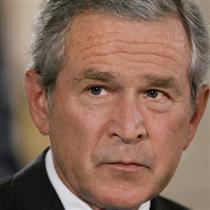
President Bush's admission yesterday that the CIA had held terrorist suspects in secret prisons overseas, in addition to selling out U.S. allies who had assisted the program, managed to misrepresent the big success story of his speech.
From The Progress Report:
In his speech, Bush defended the use of coercive interrogation by reporting that the interrogation prompted suspected al-Qaeda operative Abu Zubaydah to reveal that Khalid Sheikh Mohammed, a key figure in the 9/11 attacks, used the alias "Mukhtar." This information, according to Bush, "was a vital piece of the puzzle that helped our intelligence community pursue KSM." According to a fact sheet released by the Director of National Intelligence, Zubaydah was captured in March 2002. According to the 9/11 Commission Report, however, the CIA learned that Mohammed used the alias Mukhtar in August 2001. From page 277: "The final piece of the puzzle arrived at the CIA's Bin Ladin unit on August 28 [2001] in a cable reporting that KSM's nickname was Mukhtar."
Wednesday, September 06, 2006
The Ten Most Brazen Profiteers of Iraq War
Charlie Cray, the director of the Center for Corporate Policy in Washington, D.C., has compiled a list of the 10 most brazen profiteers of the Iraq war.
His list is as follows:
See the link for explanations of his picks.
The history of American war profiteering is rife with egregious examples of incompetence, fraud, tax evasion, embezzlement, bribery and misconduct. As war historian Stuart Brandes has suggested, each new war is infected with new forms of war profiteering. Iraq is no exception. From criminal mismanagement of Iraq's oil revenues to armed private security contractors operating with virtual impunity, this war has created opportunities for an appalling amount of corruption. What follows is a list of some of the worst Iraq war profiteers who have bilked American taxpayers and undermined the military's mission.
His list is as follows:
- No. 1 and No. 2: CACI and Titan
- No. 3: Bechtel
- No. 4: Aegis Defense Services
- No. 5: Custer Battles
- No. 6: General Dynamics
- No. 7: Nour USA Ltd.
- No. 8, No. 9 and No. 10: Chevron, ExxonMobil and the Petro-imperialists
See the link for explanations of his picks.
Tuesday, September 05, 2006
NYPD Investigates Suspicious Projectile

Maybe it was "terror." Or something even more devious.
Cops scoured a Brooklyn housing project yesterday looking for the person who threw a chocolate doughnut near Mayor Bloomberg.
Bloomberg was at the Wyckoff Gardens and Gowanus Houses in Boerum Hill to announce the installation of new security cameras when someone from a window above threw the pastry projectile - almost hitting Hizzoner's longtime girlfriend Diana Taylor, who was standing nearby.
So far, police said they have no leads.
"Inquiries were made," NYPD spokesman Paul Browne said. "Nothing was ascertained with certainty, but there is no indication it was directed at the mayor. It may have just been tossed out the window or dropped."
Confidential sources are hinting that, with the choice of projectile, the NYPD Internal Affairs division may need to become involved in the investigation.
Monday, September 04, 2006
Wishful Thinking, Pollyannaism, or What?

With the omnipresence of electronic voting technology -- mandated by the Help America Vote Act of 2002 -- I have to wonder whether predictions like this are pollyannaish at best.
After a year of political turmoil, Republicans enter the fall campaign with their control of the House in serious jeopardy, the possibility of major losses in the Senate, and a national mood so unsettled that districts once considered safely Republican are now competitive, analysts and strategists in both parties say.
Sixty-five days before the election, the signs of Republican vulnerability are widespread.
Indiana, which President Bush carried by 21 percentage points in 2004, now has three Republican House incumbents in fiercely contested races. Around the country, some of the most senior Republicans are facing their stiffest challenges in years, including Representative E. Clay Shaw Jr. of Florida, the veteran Republican on the House Ways and Means Committee; Representative Nancy L. Johnson of Connecticut, a state increasingly symbolic of this year's political unrest; and Representative Deborah Pryce of Ohio, the No. 4 Republican in the House.
Two independent political analysts have, in recent weeks, forecast a narrow Democratic takeover of the House, if current political conditions persist. Stuart Rothenberg, who had predicted Democratic gains of 8 to 12 seats in the House, now projects 15 to 20. Democrats need 15 to regain the majority. Charles Cook, the other analyst, said: "If nothing changes, I think the House will turn. The key is, if nothing changes." ...
A turnover in the Senate, which would require the Democrats to pick up six seats, is considered a longer shot. Democrats' greatest hopes rest with Pennsylvania, Montana, Rhode Island, Ohio and Missouri; the sixth seat is more of a leap of faith.
It would require Democrats to carry a state like Tennessee, Arizona or Virginia, where Democratic hopes are buoyed as Senator George Allen, a Republican, deals with the fallout from his using a demeaning term for a young man of Indian descent at a rally last month.
Democrats must also beat back Republican challenges to Senate seats in Washington, New Jersey, Maryland and Minnesota.
Sunday, September 03, 2006
14 Characteristics of Fascism

Allen L. Roland lists 14 characteristics of fascism.
All have an eerie similarity to distinguishing features of post 9-11 America.
1. Powerful and Continuing Nationalism - Fascist regimes tend to make constant use of patriotic mottos, slogans, symbols, songs, and other paraphernalia. Flags are seen everywhere, as are flag symbols on clothing and in public displays.
2. Disdain for the Recognition of Human Rights - Because of fear of enemies and the need for security, the people in fascist regimes are persuaded that human rights can be ignored in certain cases because of "need." The people tend to look the other way or even approve of torture, summary executions, assassinations, long incarcerations of prisoners, etc.
3. Identification of Enemies/Scapegoats as a Unifying Cause - The people are rallied into a unifying patriotic frenzy over the need to eliminate a perceived common threat or foe: racial , ethnic or religious minorities; liberals; communists; socialists, terrorists, Islamic fascists, etc.
4. Supremacy of the Military - Even when there are widespread domestic problems, the military is given a disproportionate amount of government funding, and the domestic agenda is neglected. Soldiers and military service are glamorized.
5. Rampant Sexism - The governments of fascist nations tend to be almost exclusively male-dominated. Under fascist regimes, traditional gender roles are made more rigid. Divorce, abortion and homosexuality are suppressed and the state is represented as the ultimate guardian of the family institution.
6. Controlled Mass Media - Sometimes the media is directly controlled by the government, but in other cases, the media is indirectly controlled by government regulation, or sympathetic media spokespeople and executives. Censorship, especially in war time, is very common.
7. Obsession with National Security - Fear is used as a motivational tool by the government over the masses.
8. Religion and Government are Intertwined - Governments in fascist nations tend to use the most common religion in the nation as a tool to manipulate public opinion. Religious rhetoric and terminology is common from government leaders, even when the major tenets of the religion are diametrically opposed to the government's policies or actions.
9. Corporate Power is Protected - The industrial and business aristocracy of a fascist nation often are the ones who put the government leaders into power, creating a mutually beneficial business/government relationship and power elite.
10. Labor Power is Suppressed - Because the organizing power of labor is the only real threat to a fascist government, labor unions are either eliminated entirely, or are severely suppressed.
11. Disdain for Intellectuals and the Arts - Fascist nations tend to promote and tolerate open hostility to higher education, and academia. It is not uncommon for professors and other academics to be censored or even arrested. Free expression in the arts and letters is openly attacked.
12. Obsession with Crime and Punishment - Under fascist regimes, the police are given almost limitless power to enforce laws. The people are often willing to overlook police abuses and even forego civil liberties in the name of patriotism. There is often a national police force with virtually unlimited power in fascist nations.
13. Rampant Cronyism and Corruption - Fascist regimes almost always are governed by groups of friends and associates who appoint each other to government positions and use governmental power and authority to protect their friends from accountability. It is not uncommon in fascist regimes for national resources and even treasures to be appropriated or even outright stolen by government leaders.
14. Fraudulent Elections - Sometimes elections in fascist nations are a complete sham. Other times elections are manipulated by smear campaigns against or even assassination of opposition candidates, use of legislation to control voting numbers or political district boundaries, and manipulation of the media. Fascist nations also typically use their judiciaries to manipulate or control elections.
Saturday, September 02, 2006
Miami 'Terror' Plot Targets Selected By FBI Informant

The June arrests of seven men in Miami for conspiring to blow up the Sears Tower and FBI offices in various cities, was not as big of a threat as the bedwetter bloggers were claiming when the news first broke.
In fact, much of the directing of the "plot" was done by cooperating witnesses (informants) working for the FBI.
The "conspirators" were not your typical disciplined terrorist operatives:
The plot featured self-proclaimed militant religious leaders who referred to themselves as kings, talked of establishing their own nation inside the United States, called their headquarters an embassy and discussed plans to train their recruits to use bows and arrows. One of their quixotic notions was to blow up Chicago's Sears Tower.
(Narseal) Batiste's father, a Christian preacher and former contractor who lives in Louisiana, told the news media after the indictment that his son was "not in his right mind" and needed psychiatric treatment.
Since the Sept. 11, 2001, attacks, separating serious terrorist plotters from delusional dreamers has proved one of the FBI's most challenging tasks. The effort is complicated by the bureau's frequent use of informants who sometimes play active roles in the plotting.
It is complicated further by our grandstanding Attorney General's desire to make the administration look effective in battling the terrorists in our midst.
On June 23, Attorney General Alberto R. Gonzales held a news conference to announce the destruction of a terrorist cell inside the United States, hailing "our commitment to preventing terrorism through energetic law enforcement efforts aimed at detecting and thwarting terrorist acts." ...
But lawyers for the defendants have raised questions about where a government sting ends and entrapment begins. Not only did government informants provide money and a meeting place for Batiste and his followers, but they also gave them video cameras for conducting surveillance, as well as cellphones, and suggested that their first target be a Miami FBI office, court records show.
At the hearing, Batiste's attorney, John Wylie, showed that the FBI's investigation found no evidence that his client had met with any real terrorist, received e-mails or wire transfers from the Middle East, possessed any al-Qaeda literature, or had even a picture of bin Laden. ...
By mid-November, the FBI decided to take a more active role. Agents introduced a more experienced Middle Eastern-born informant, CW2, to play the role of a potential financier to prevent Batiste from seeking money elsewhere. CW2, according to court papers, had worked for the FBI for six years and provided information that led to the arrests of two individuals on "terrorist-related charges."
But CW2 soon also took a key role in the plotting, suggesting targets and supplying videotaping equipment, according to the court papers. His reward was $17,000 the FBI paid for his services, and approval of his petition for political asylum in the United States. ...
Acting on instructions from the FBI, CW2 told the group that his al-Qaeda bosses were planning to attack FBI buildings in Washington, Chicago, Los Angeles, New York and Miami. He asked that Batiste and his group assist by providing video of the Miami FBI building, "which would be sent back to al Qaeda overseas," according to court papers. He also gave Batiste a video camera.
Friday, September 01, 2006
GOP Lawmakers Initiated NAACP IRS Investigation

A several year investigation of the NAACP by the IRS was initiated at the request of a group of Republican lawmakers with the goal of stripping the organization of its tax-exempt status.
The gooper politicians failed in their effort, which began following NAACP criticism of the Bush administration, including allegations of the theft of the 2000 presidential election.
Nearly two years after a controversial decision to investigate the NAACP for criticizing President Bush during the 2004 presidential campaign, the Internal Revenue Service has ruled that the remarks did not violate the group's tax-exempt status.
In a letter released yesterday by the NAACP, the IRS said the group, the nation's oldest and largest civil rights organization, "continued to qualify" as tax-exempt. ...
(IRS Commissioner Mark W. Everson) said the investigation of the NAACP was undertaken because two congressional leaders, whom he declined to name, requested it. They were unhappy because Bond criticized Bush in a speech in July 2004, saying his administration preached racial neutrality and practiced racial division.
"They write a new constitution of Iraq and they ignore the Constitution at home," Bond said.
After filing four freedom-of-information requests, NAACP lawyers discovered that far more than two members of Congress called for an investigation and that all were Republicans.
Republican Sens. Lamar Alexander (Tenn.) and Susan Collins (Maine) called for the investigation.
Others included Rep. Jo Ann S. Davis (R-Va.) and then-Rep. Larry Combest (R-Tex.). Former GOP representatives Joe Scarborough of Florida, who now hosts a talk show, and Robert L. Ehrlich Jr., currently governor of Maryland, also requested a probe. ...
Angela Ciccolo, an NAACP lawyer, noted that although Bond's remarks were made in July 2004, the investigation did not begin until October, just when the NAACP was attempting to register voters. "The timing of the investigation is critical," she said.
When the investigation started, Bush and the NAACP were locked in a long-running feud that started shortly before the president's first election victory in 2000.
During that campaign, the NAACP ran television spots featuring the daughter of James Byrd Jr., a black man who was dragged to death behind a pickup truck in Texas in 1998. She criticized Bush, then governor of Texas, for not signing hate-crime legislation.
The rift grew when the NAACP charged that Republicans in Florida stole the 2000 election by turning black voters away from the polls.


